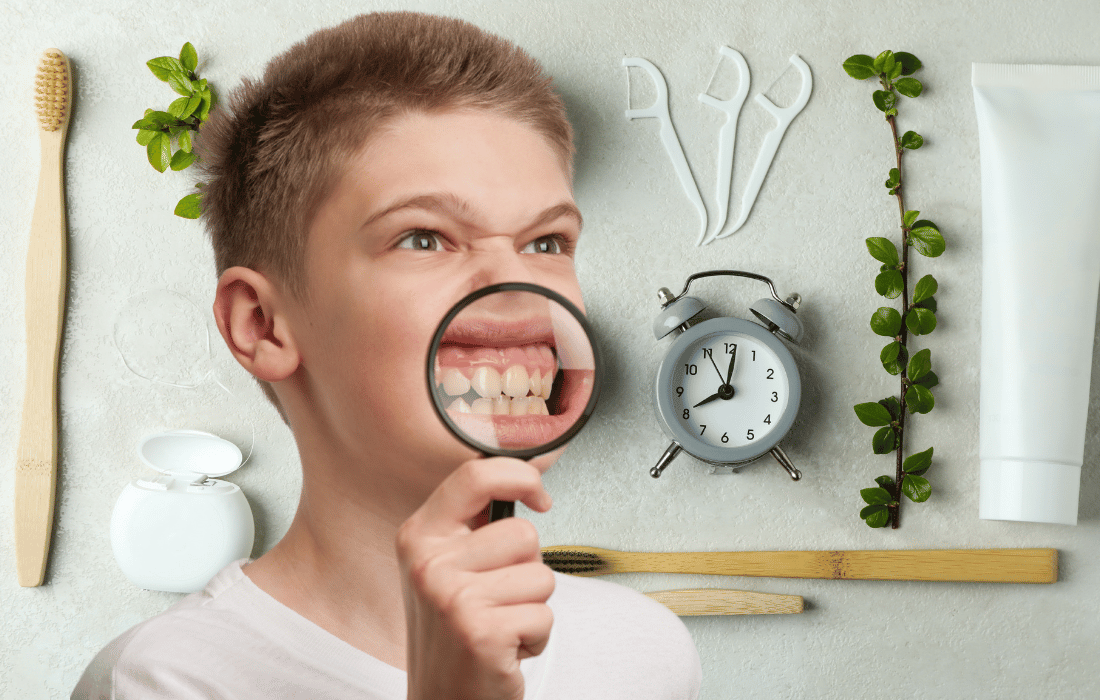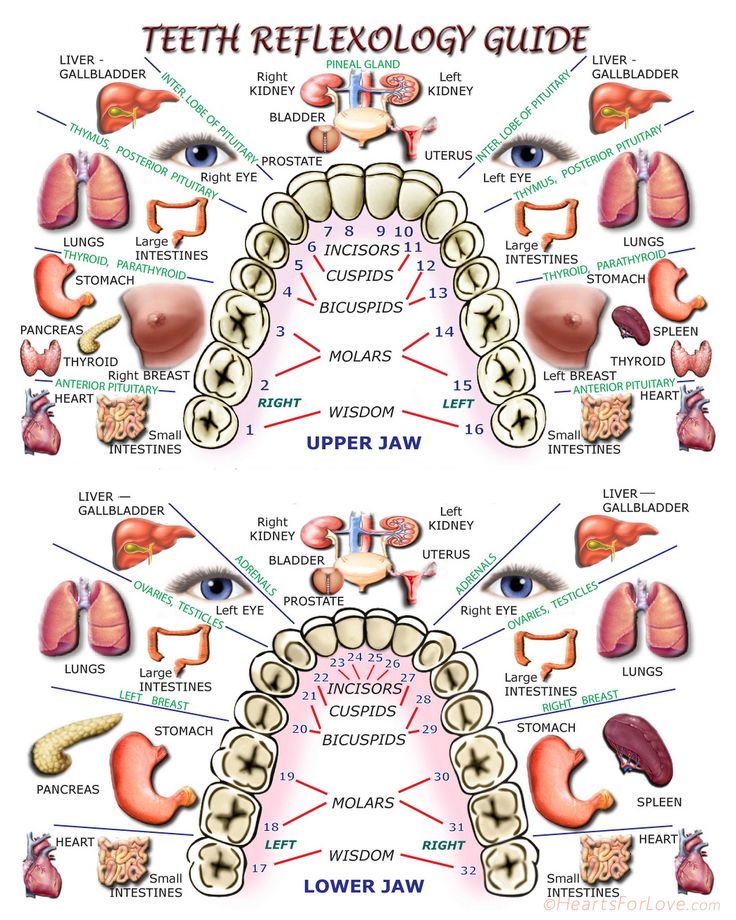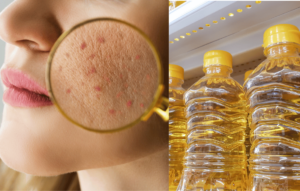Growing up, I always felt like I had the golden ticket when it came to oral health. I was the sibling with “perfect teeth”—no braces, no cavities, and no strict oral hygiene routine. Meanwhile, my sister, who would religiously floss and brush her teeth, found herself frustrated every time she was told she had yet another cavity. The irony was not lost on either of us: she took oral health seriously, while I often forgot to brush altogether, yet I was the one without cavities.
But my late-night munchies in high school and falling asleep without brushing eventually caught up to me. College was a wake-up call—literally. I remember sitting in the dentist’s office, shocked, as the dentist told me I had eight cavities. To top it off, I needed a root canal. It was a turning point. I realized that my “perfect teeth” could only withstand so much neglect. If I had continued down the same path, I probably would have lost most of my teeth by now.
Today, I deeply regret getting that root canal, especially with everything I’ve learned about its long-term health effects. But before we dive into that, let’s talk about how I went from brushing twice a day with chemical-filled toothpaste to embracing a holistic oral care routine based on Ayurvedic practices and natural, fluoride-free products.
The Real Cost of a Root Canal
Let’s get one thing straight: root canals are not always the saviors they’re made out to be. A root canal procedure involves removing the infected or dead pulp from inside a tooth, cleaning out the area, and sealing it. It sounds simple, but the truth is, it’s far from it. The tooth, once “dead,” becomes a breeding ground for bacteria, since blood circulation is no longer present to clear out any lingering pathogens.
Research shows that bacteria like Enterococcus faecalis and Propionibacterium acnes thrive in the dark, oxygen-deprived environment of a root-canaled tooth. These bacteria can promote cell growth in a way that may encourage the spread of oral pathogens throughout the body, leading to more serious conditions, including cancer and systemic infections. What’s worse, the bacteria in a root canal can sometimes be resistant to antibiotics and immune system defenses. Studies like the one by Suprewicz et al. shed light on the fact that these bacterial infections can alter the mechanical properties of cancer cells, potentially contributing to disease.
With this knowledge, I now explore safer alternatives to root canals. From ozone gas therapy to tooth extraction and biocompatible implants like zirconia, holistic dentistry offers options that don’t compromise your health. Ozone therapy is especially fascinating because it kills bacteria without leaving harmful residues behind, all while supporting surrounding healthy tissue.
The Path to Holistic Oral Care: Embracing Ancient Wisdom
Once I realized the damage I’d done with poor oral habits—and after that shocking college dentist visit—I knew I needed to make a change. My research led me to holistic oral care, where the goal isn’t just about avoiding cavities but fostering overall wellness. Ayurvedic practices like oil pulling, tongue scraping, and saltwater gargling became my go-to rituals.
Oil Pulling: A Detox for Your Mouth
Oil pulling is an ancient Ayurvedic technique where you swish oil—usually coconut or sesame—in your mouth for about 5-20 minutes. It may seem strange, but this practice is an excellent way to detoxify your mouth. The oil draws out bacteria, reduces plaque, and promotes healthy gums. Over time, I found that oil pulling left my mouth feeling cleaner and fresher, even on days I didn’t brush right away. Studies show that oil pulling can reduce harmful bacteria like Streptococcus mutans, the leading cause of tooth decay, by up to 30%. Make sure to spit your oil in the trash and not the sink afterward, as this can clog your drain.
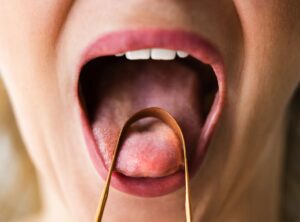 Tongue Scraping: The Overlooked Habit
Tongue Scraping: The Overlooked Habit
Another game-changer was tongue scraping, a practice that removes bacteria and toxins that accumulate overnight on your tongue. A stainless steel or copper scraper does the trick, gliding across the tongue to remove that unpleasant coating you often wake up with. It not only freshens breath but also improves taste and oral hygiene.
Saltwater Gargling: Nature’s Disinfectant
Saltwater gargling became another staple in my routine. This simple solution, made with sea salt and warm water, helps alkalize the mouth, creating an environment where harmful bacteria can’t thrive. It’s also great for reducing inflammation and soothing irritated gums.
Why I Avoid Mouthwash: Protecting Good Bacteria
One common product I’ve completely removed from my routine is commercial mouthwash. While it’s marketed as a way to “kill 99.9% of germs,” mouthwash doesn’t distinguish between harmful bacteria and the beneficial bacteria that your mouth and gut need to stay healthy. Research shows that regular use of mouthwash can disrupt the balance of your oral microbiome, killing off good bacteria that help regulate digestion, maintain healthy gums, and even prevent bad breath naturally.
Even worse, by wiping out this good bacteria, mouthwash can negatively affect your gut health. Studies have linked frequent mouthwash use with a higher risk of developing conditions like high blood pressure and digestive issues, as good bacteria play a crucial role in producing nitric oxide, a molecule that regulates blood flow and heart health.
The Role of Diet and Weston A. Price’s Research
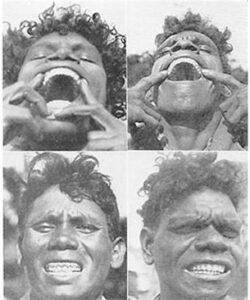
Dr. Weston A. Price, a dentist in the early 20th century, transformed the way we think about oral health through his groundbreaking research. Price traveled the world, studying indigenous populations who were free from modern dental diseases. His findings revealed that people with the most robust oral health followed traditional diets rich in fat-soluble vitamins (A, D, E, and K), minerals, and whole foods, especially nutrient-dense animal products.
One of the key insights from Price’s work was that poor diet, particularly diets lacking in these essential nutrients, led to deformed dental arches, crowded teeth, and an increased risk of cavities. He noted that the healthiest teeth belonged to those whose diets were rich in whole, unprocessed foods—foods that provided the raw materials the body needed to maintain strong bones, including teeth.
This is where diet and oral health connect. When I was younger, my teeth were resilient because my body was likely well-nourished from a traditional diet rich in whole foods. But by the time I was snacking on processed junk food in high school and college, my oral health took a nosedive. If I had continued down that path, I would have undoubtedly faced further dental issues.
The Connection Between Oral Health and Our Feet
What do your teeth have to do with your feet? As strange as it sounds, holistic health practitioners often highlight the importance of body alignment—and it turns out there’s a connection between your oral health and the way you stand or walk. Improper posture or misaligned teeth can affect your entire skeletal system, including your feet. For example, teeth grinding, or bruxism can cause strain on your jaw, neck, and even your spine, eventually affecting your gait.
Traditional Chinese Medicine also teaches that each tooth is connected to a specific organ or part of the body, including areas like the feet. For instance, issues with your molars may correspond to problems in your knees, while front teeth may be linked to the kidneys and bladder.
My Shift to Natural, Non-Fluoride Oral Products
Fluoride-free toothpaste is the cornerstone of holistic oral care. After learning the truth about fluoride, including its link to thyroid dysfunction and calcification of the pineal gland, I switched to non-toxic, natural alternatives. One of my favorite products is VanMan’s Miracle Tooth Powder, which uses ingredients like hydroxyapatite from grass-fed cattle bones, bentonite clay, and sea salt.
VanMan’s Miracle Tooth Powder: A Game-Changer in Oral Care
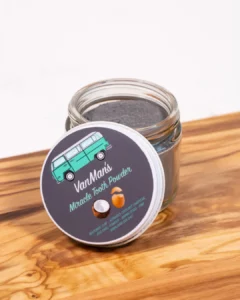
VanMan’s tooth powder is a game-changer. Unlike conventional toothpaste loaded with chemicals, this powder is packed with minerals that support remineralization and strengthen enamel. The hydroxyapatite in the powder is the same substance that makes up your tooth’s structure, which means you’re literally feeding your teeth what they need to stay strong. Plus, the formula is entirely fluoride-free and made from natural ingredients like baking soda, xylitol, and organic essential oils. It’s safe enough to eat—something I appreciate in any product I use on my body, especially my mouth.
Safely Removing Mercury Amalgam Fillings: A Must for Holistic Health
One of the biggest steps I took toward holistic oral health was finding a local holistic dentist to remove my mercury amalgam fillings safely. These fillings are a toxic mix of mercury, silver, tin, and copper. Over time, they can release mercury vapor, which can be harmful, especially when chewing or drinking hot liquids.
The FDA has issued warnings about amalgam fillings, particularly for pregnant women, children, and people with neurological diseases. However, removing these fillings must be done safely to prevent excess mercury exposure. That’s why I sought out a dentist who specializes in biocompatible materials and uses techniques like oxygen/ozone therapy to disinfect the area during the removal process. Ozone therapy is not only effective in killing bacteria but also promotes healing without the need for harsh chemicals.
Conclusion: A Commitment to Holistic Oral Health
Shifting from conventional oral care to a holistic approach has been life-changing for me. Through Ayurvedic practices like oil pulling, tongue scraping, and saltwater gargling, combined with non-toxic products like VanMan’s Miracle Tooth Powder, I’ve reclaimed my oral health in a way that supports my whole body. Understanding the dangers of root canals and amalgam fillings has further emphasized the importance of being proactive in my dental care choices. Oral health is about so much more than just brushing and flossing—it’s a reflection of our diet, posture, and overall lifestyle.

